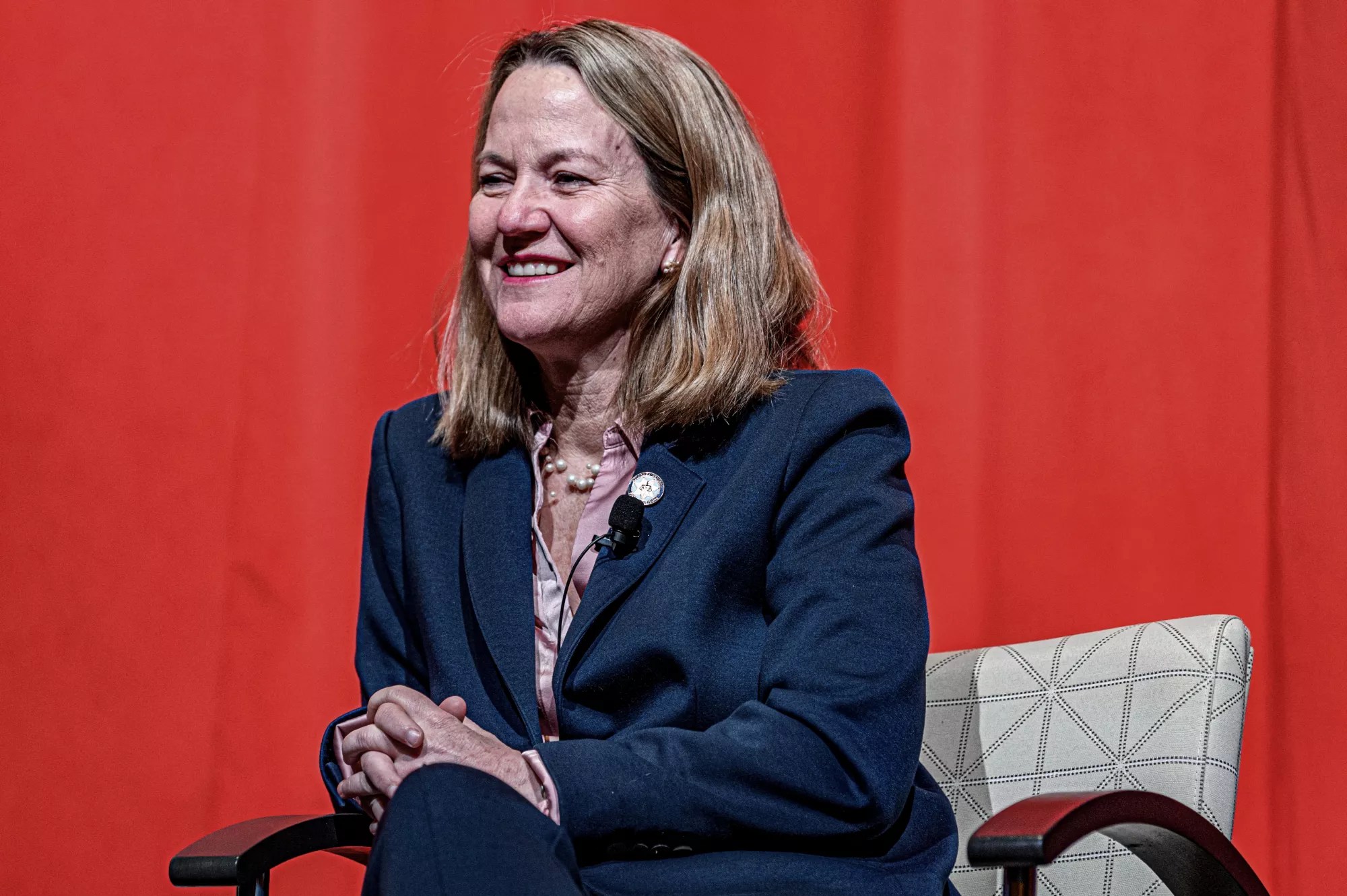
Jacob Tyler Dunn

Audio By Carbonatix
In Arizona and elsewhere, it takes green to get green. When you walk into a dispensary to buy some flower or prerolls, you’ve got to dig into your wallet and pay with cold, hard cash.
That’s because, despite the widespread legalization of recreational marijuana at the state level in the United States, the drug is still considered illegal for recreational use under federal law. And that technicality prevents dispensaries and other cannabis-related businesses from being able to access banking services available to almost any other enterprise.
Banks won’t take cannabis money, and therefore, dispensaries can’t take your credit or debit card. So whenever you pop in for some pot, you have to be flush.
Arizona Attorney General Kris Mayes wants that to change. On July 24, Mayes and 31 other attorneys general from U.S. territories and states sent a letter to congressional leaders urging them to pass the SAFER Banking Act of 2025, which would clear a path to banking services for cannabis businesses. The issue has bipartisan support, with Republican and Democratic attorneys general signing the letter.
The group of AGs calls cannabis banking a “bipartisan issue” and emphasizes the need for an effective “safe harbor” in an industry that isn’t consistently regulated. They note that passing the act would make it easier for federal, state and local tax agencies to more effectively monitor cannabis businesses and their transactions.
Ann Torrez, the executive director of the Arizona Dispensaries Association, told Phoenix New Times that the act would also make shopping easier and safer for customers and dispensary employers alike.
“The SAFER Banking Act will give Arizona dispensaries access to traditional banking, making operations safer and more efficient,” Torrez said. “It will allow them to accept both debit and credit cards, creating a faster, more convenient experience for customers. This also reduces the risks and burdens of handling large amounts of cash.”
There isn’t currently extensive data about crime occurring at or around dispensaries, but safety has been a growing concern. Arizona dispensaries must adhere to strict security requirements, and there are requirements for delivery drivers as well. For instance, vehicles are required to be unmarked and product packaging must be discreet. Drivers must not carry more than $10,000 of marijuana products in their vehicle.
Cannabis banking reform would allow delivery transactions to be completed via credit card, obviating the need to carry large amounts of cash in an unmarked vehicle driving around town.
“When the public is only allowed to conduct business in cash, employees and customers are at greater risk of violent crime in pursuit of that cash,” the AG letter states. “Allowing access to the nation’s regulated banking system is crucial to public safety.”
In a statement to New Times, Mayes added that “allowing legal cannabis businesses to use traditional regulated banking would help mitigate the risks associated with cash-based businesses, which are often targets of criminals.”

Arizona Attorney General Kris Mayes says that cannabis banking reform would make it easier to ensure dispensaries are in compliance with the law.
Kevin Hurley
The economic argument
Despite the letter, it’s unclear if the SAFER Banking Act has a chance to pass this year.
Efforts to reform cannabis banking go back at least to 2019, without much reform to show for it. Last year, a version of the SAFER Banking Act passed the House of Representatives and cleared the Senate Banking Committee, but was never brought to the Senate floor. A 2025 version has yet to be introduced in either chamber.
The AGs who signed the letter and the ADA hope the economic benefits of the bill will persuade lawmakers. The cannabis industry is a huge one. In 2024, the letter states that in 2024, U.S. legal cannabis retail sales reached $30.1 billion, a 4.5% increase year over year. Regulated cannabis businesses provided approximately 425,000 jobs last year. As of 2025, 21 states – including Arizona – collect tax revenues from cannabis sales.
Much of that business is being done without access to traditional banking. The letter noted that several state agencies have been turned away by financial institutions when attempting to deposit cannabis-related payments.
“Cash-only transactions create major headaches across the entire cannabis supply chain, not just at retail,” Torrez said. “From cultivators to contractors, everyone is forced into an outdated, high-risk system that no other modern industry uses.”
According to a Mayes press release about the letter, “compliance with tax laws would be simpler and easier to enforce with regulated tracking of funds in the banking system, resulting in higher tax revenues.”
Not every state has legal cannabis, of course. Thirty-nine states, three territories and the District of Columbia currently permit medical cannabis use, while 24 states, two territories and D.C. have legalized adult-use recreational cannabis. Despite the wave of legalization, there is still resistance among some lawmakers to anything cannabis-related. To that point, the AGs wrote that the SAFER Banking Act is not intended to encourage legalization in states that have not done so.
“The SAFER Banking Act simply addresses the specific public policy challenges … in a way that will help move cash from legal cannabis businesses into the highly regulated banking system, where it will be more transparent to state regulators and law enforcement,” the letter stated. “It is common-sense, bipartisan, and will beneficially impact the safety of the nearly 75 percent of Americans who live in a state where cannabis has been legalized.”
Torrez pointed out that being able to accept credit cards – and not having to worry about keeping large quantities of cash – would potentially reduce the cost of cannabis products for users. And if that argument doesn’t win over the “weed is bad” crowd, she noted that if lawmakers clear hurdles so that cannabis businesses can operate like any other, economic productivity and tax revenue will only increase.